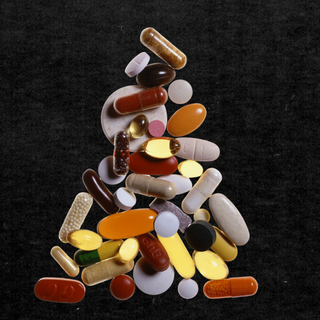Scientists have just identified the type of gut bacteria responsible for intestinal inflammation in patients with Crohn’s disease. They say the discovery could lead to more targeted therapies for a hitherto “difficult to treat” disease.
Crohn’s disease is an inflammation of the digestive tract, which can lead to abdominal pain, diarrhea, fatigue, weight loss, and even malnutrition. Considered a rare disease in India, experts have pegged its prevalence in the country as 7 per 1 lakh people. At present, there is no known cure for Crohn’s disease, but researchers say the recent discovery could make living with the condition more manageable.
Published in Cell Host and Microbe, the study found that patients suffering from Crohn’s disease have an overabundance of a gut microbe called adherent-invasive Escherichia coli, or AIEC. A metabolite produced by AIEC interacts with immune system cells lining the intestine, resulting in inflammation. Specifically, AIEC thrives on an enzyme that is the byproduct of the breakdown of fucose, a sugar found in the digestive tract. When AIEC converts the enzyme into energy, it releases the metabolite that triggers inflammation. Scientists hope to disrupt this process.
Related on The Swaddle:
Researchers Confirm Gut Bacteria and Autism Link
Researchers are positive this discovery could be used to usher in a big change in the future of treatments for Crohn’s disease. “Changing one metabolic pathway in one type of bacteria can have a big impact on intestinal inflammation,” Dr. Monica Viladomiu, a post-doctoral associate in medicine at the Jill Roberts Center for Inflammatory Bowel Disease in the U.S. and a study author, said in a statement.
Researchers say the potential treatments would aim to cut off the gut microbe’s energy source — the fucose byproduct — thus curbing its inflammatory effects. “The study reveals a therapeutically target-able weak point in the bacteria. … If we can develop small-molecule drugs that inhibit [the enzyme] or use dietary modifications to reduce the availability of [the sugar], we may be able to reduce intestinal inflammation in patients with Crohn’s disease with fewer side effects,” Dr. Randy Longman, a gastroenterologist at the Jill Roberts Center and a study author, told the media.
At present, people suffering from Crohn’s disease are often prescribed antibiotics, which can kill both good and bad bacteria in the gut, causing undesirable side effects. But scientists are hopeful that the findings of this study could lead to the development of targeted treatments to reduce inflammation and Crohn’s symptoms while preserving beneficial bacteria.




